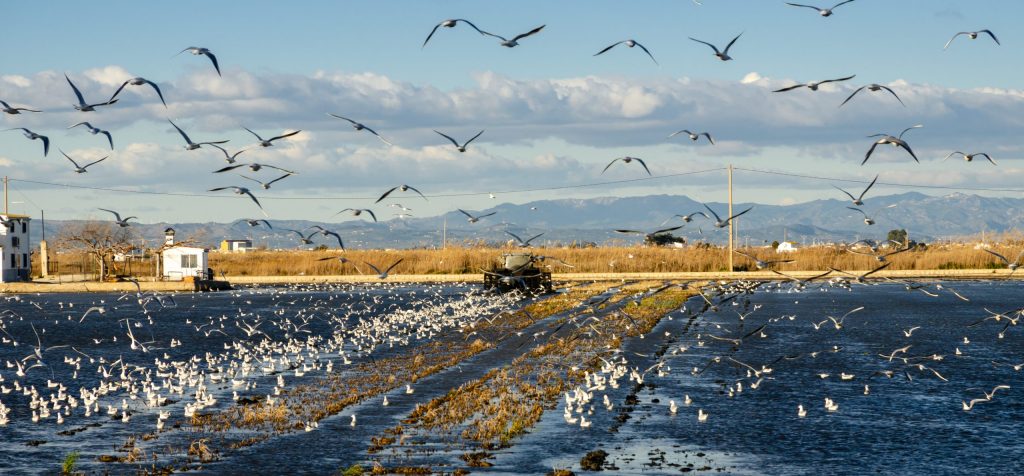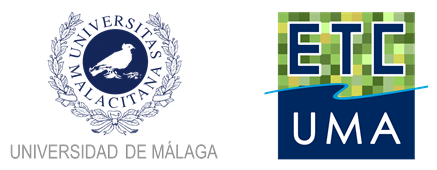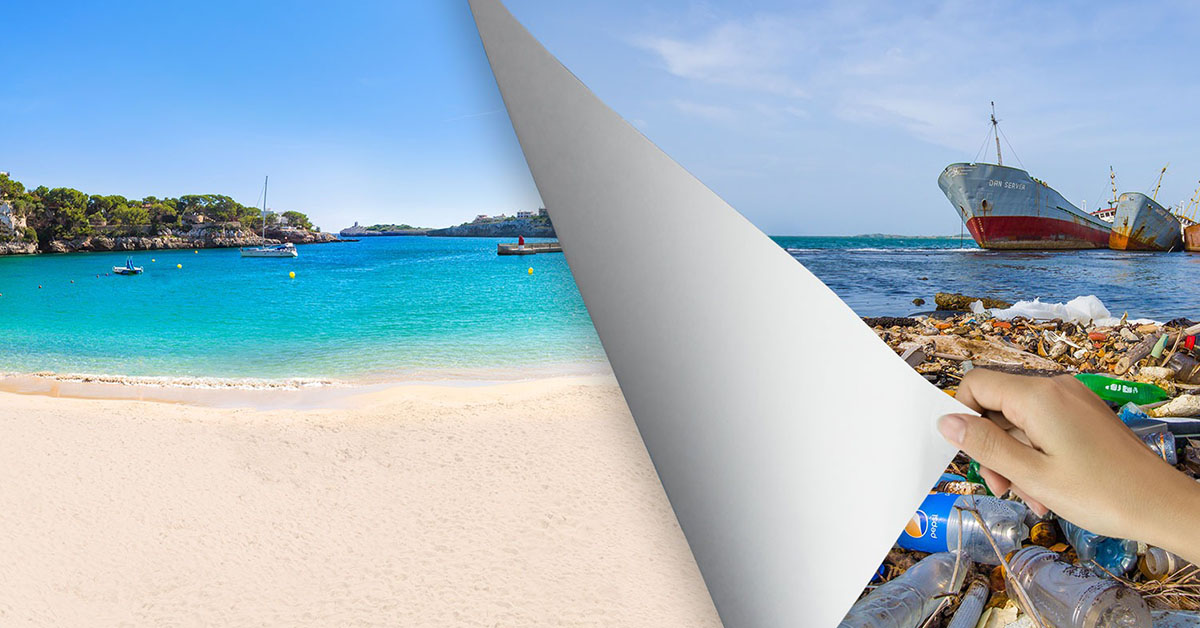Authoritative science [1] agrees that global and regional targets for conserving biodiversity cannot be met by current trajectories; the goals for 2030 and beyond will only be achieved through transformative changes towards sustainability affecting our economic, social, political, and technological realities. As the Global assessment by the Intergovernmental Platform on Biodiversity and Ecosystem Services (IPBES) [2] explains ”transformative changes refer to doing things differently—not just a little more or less of something we are already doing”.
When it comes to the Mediterranean region, there is no longer any doubt that nature´s unprecedented degradation rates caused by our overexploitation of natural resources and the climate crisis, are impacting our ecosystems leading to tipping points [3]. The main cause of such deterioration is linked to the Mediterranean economic model, as, incentives tend to favour expanding economic activities at the cost of our natural environment. This situation is exacerbated by the Blue Gold Rush [4] phenomenon linked to the expansive strategies set under the Mediterranean Blue economy.
Despite existing gaps, scientists agree that innovative solutions [5] already exist, offering evidence, knowledge and transferable governance uptake options which, if effectively mainstreamed into policies and then implemented, would improve nature conservation and support priority actions in ecologically and biologically significant areas (EBSAs) in the region. These transferable solutions, if implemented by multi-level policies, would create the conditions needed to support biodiversity and ecosystem restoration agendas at a Mediterranean level. The knowledge and tools are already here – their effective implementation requires only “leadership” and a “will to act”.

“Leadership” and “will to act” come very clearly as an argument during the dark times we, as society, are living due to the COVID-19 virus outbreak and its grave consequences on our health and on our economies. Treated as a crisis, the COVID-19 outbreak demonstrates that “leadership” and “will to act” are possible when a sense of urgency is perceived. We have witnessed effective and timely responses executed by multi-level decisions, using adaptive management plans at different scales and applied on the ground with decisive actions and close monitoring. This crisis is shedding the light on the success of cross-boundary cooperation and proving the viability of the concept “thinking globally, acting locally”.
A striking effect of these timely responses to manage the COVID-19 crisis is the capacity of nature and biodiversity to regenerate and recover otherwise occupied spaces. While humans are giving way to nature, wildlife is flourishing back, registering the reappearance of species in habitats that we usually overexploit or have transformed for our economic benefit. Inspiring signs on the direct paybacks received from nature include the recovery of fundamental ecological functions directly linked to our health like cleaner air and waters. [6]
It is very clear now that, as far as the adequate circumstances occur, nature shows obvious signs of recovery, proving that targeted responses can create the enabling conditions for the co-existence of humans and nature. This “first of its kind” wide scale demonstration of how our behaviour impacts life and our environment at all levels should trigger decisions to transform the regional unsustainable economic model into a sustainable economy. A new back-to-nature economy where businesses realize the value of and invest in nature to obtain healthier and fairer benefits for all. A new model that actively fights the loss and degradation of biodiversity and ecosystems as the very foundation for a healthier society.
The “political will to act” and the belief in our capacity to do things differently are the enabling factors to reach a tangible reduction of the human pressure on our Mediterranean environment. The mechanisms to mitigate potential conflicts between the conservation and the use of natural resources are ensured by connecting finance and natural capital systems that acknowledge the values of ecosystem functions as nature’s contribution to people, and that understands the economic incentives [7] a healthy nature provides, and so leads towards better ecological, economic and social outcomes for Mediterranean livelihoods.
There is no doubt that challenges will arise while executing transformative measures, varying across contexts in developing and developed countries in the Mediterranean. Nevertheless, risks related to inevitable complexities in accomplishing such measures can only be reduced through informed, cooperative, inclusive, integrative, and adaptive governance approaches.
Against the outstanding evidence showing the link between our lives as totally dependent on nature and its interconnected ecosystems, the only way to contribute to a sustainable long-term future for local livelihoods and economies is becoming part of these transformative mechanisms, finally understanding that “our solutions are in nature”.
On this International Day for Biological Diversity, citizens, businesses and decision makers in the Mediterranean are urged to embrace a “will to act”, and to uptake priority transformative actions in their “re-naturalized” strategic plans and financial priorities. It is not too late to make a difference, but we need to start now, at every level, all society members, from local to global.
[1] Key global and regional assessments such as the IPBES, IPCC, the latest report of the Mediterranean Experts on Climate and environmental Change (MedECC) have clearly pointed out the need for transformative change addressing these fundamental and urgent goals.
[2] The Summary to policy makers of the Global IPBES Assessment: https://bit.ly/3aWjY7f
[3] Tipping points is defined as a situation in which an ecosystem experiences a shift to a new state, with significant changes to biodiversity and the services it underpins at a regional or global scale.
[4] PHAROS4MPAs – Blue Economy and Marine Conservation: Safeguarding Mediterranean MPAs to achieve Good Environmental Status
[5] Some indicative examples are available in the toolkit developed by the Mediterranean Biodiversity Protection Community. This practical toolkit is translated into different languages, synthesising a wide variety of tailor-made solutions made available to be applied in the field.
[6] Several areas declared as protected are evidencing new observations such as rare sightings of the fin-whales have been spotted off the coast of Marseilles in the national reserve the Parc des Calanques, or the return of crystal-clear waters to the Venetian lagoon (Natura 2000 site) as lagoon sediments settled on its floors with boating traffic stopped. Even sightings of the Mediterranean monk seal in Lebanon have been reported. These new observations are not only limited to areas declared as protected: amazing evidence is reaching us from degraded artificial areas where urban settlements are receiving visits from neighbouring fauna returning to habitats once used and now taken away from them by human settlements. Even areas that have been exposed to polluted air due to neighbouring industries have registered extreme drops in the concentration of nitrogen dioxide, as a consequence of the strict lock-down measures implemented, as the Copernicus Sentinel-5O satellite of the European Space Agency images have shown.
[7] https://naturalcapital.finance/wp-content/uploads/2018/11/Finance-Sector-Guide.pdf





